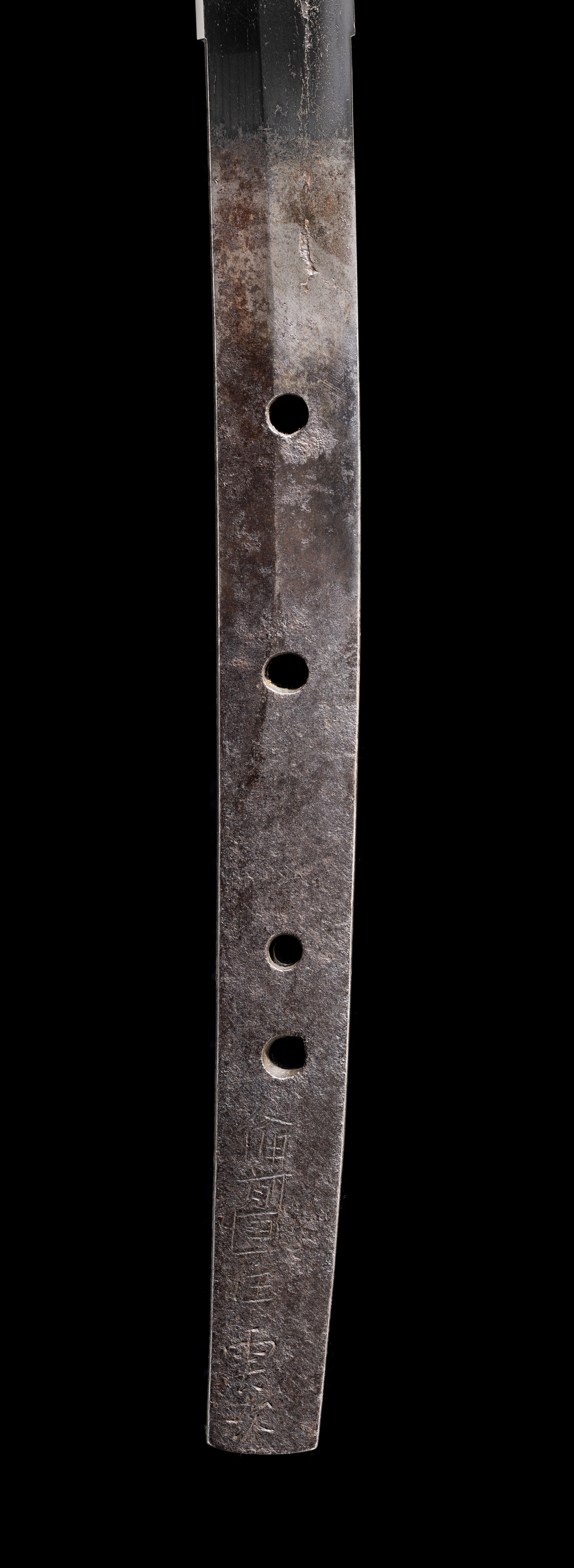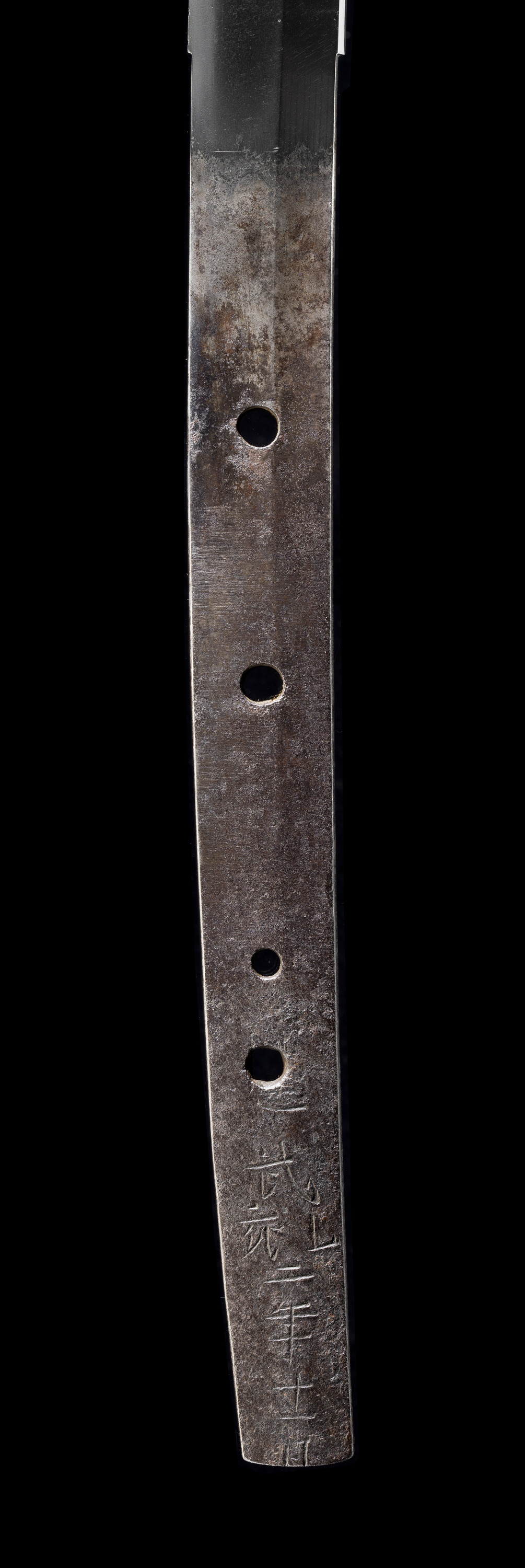- TOP
- Long Sword (Tachi), Signed "Unji of Bizen
Overview
Important Cultural Property
Long Sword (Tachi), Signed "Unji of Bizen
- Museum No.
- EK209
Showing 1-6 of 4
| Title | Long Sword (Tachi), Signed "Unji of Bizen |
|---|---|
| Designation | Important Cultural Property |
| Artist | Bizen-no-kuniJu'unji |
| Category | Metalwork(E), Sword |
| Country | Japan |
| Period | Nanbokuchō |
| Century | 14th |
| Year | 1335 |
| Quantity | |
| Materials | |
| Dimensions | Length 71.5cm Curvature 1.5cm |
| Inscription by | |
| Signature/Seals Etc | 佩表「備前国住雲次」 裏に「建武乙亥二年十一月」 |
| Donor |
This object may be one within a set or the title of a set. To see all objects in the set, perform a Category Search by the Museum Number below, entering numerals only before the hyphen.













At the end of the Kamakura period (1185-1333), a swordsmith named Unshô (n.d.) rose to prominence in Unkan no Shô in Bizen Province (the center of present-day Okayama Prefecture). Differing in style from the Osafune and other schools, the new school was known as the Ukan School. Unji was the son of Unshô.
A number of features of this long sword (J., tachi) blade are characteristic of the Ukan School and reflect the style of Kyoto blades. The blade itself is narrow, and the curve is approximately at the center of the blade. The straight temper line of medium width (J., chû suguha) is broken by small undulations (J., konotare) in some places. The theory that one branch of the school made sword blades in Kyoto is based on these features.
The inscriptions, on both sides of the tang, read: "Bizen no Kuni ni sumitaru Unji" ("Unji, resident of Bizen Province") on the obverse and "Kenmu kinoto i ni nen jûichigatsu" ("Second year of Kenmu [1335], kinoto year of the boar, eleventh month") on the reverse. Blades bearing extended inscriptions with Unji's name are extremely rare. This sword, with its Kenmu era inscription, is a precious source of information about when the Ukan School was active.
Japan-Nambokucho